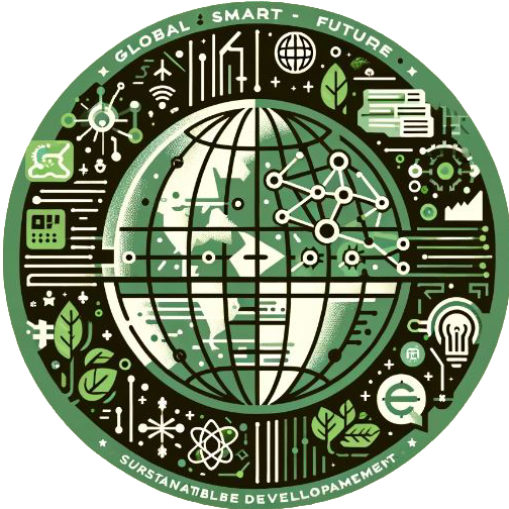Mang Den Project
1. Background and Purpose
Mang Den, located in Vietnam’s central highlands, is endowed with rich natural resources, diverse ecosystems, and a vibrant cultural heritage. Despite its potential, the region faces developmental challenges in tourism, agriculture, education, and environmental sustainability. The Global Smart Future (GSF) Center, based at BanaRita Farm in Da Nang, aims to transform Mang Den by leveraging collaboration between Vietnam and South Korea. This initiative seeks to bring together expertise, technology, and resources from both countries to foster comprehensive development programs that will benefit the local community and the environment.
2. Objectives
The Mang Den Project aims to:
- Tourism Development: Enhance tourism infrastructure and experiences to attract more visitors and boost the local economy.
- Agricultural Innovation: Introduce smart agriculture technologies and high-value crop cultivation to improve productivity and sustainability.
- Educational Advancement: Improve education through language programs, student exchanges, and joint research initiatives.
- Environmental Sustainability: Implement environmental projects to protect and restore ecosystems, focusing on green carbon projects, waste management, and water quality improvement.
3. Key Partners
- BanaRita Farm: Central hub for GSF Center operations, providing facilities and resources for research, training, and program implementation.
- CWCA (Korean Wetland Conservation Association): Partner in environmental conservation and green carbon projects.
- VTHR (Vietnam Training & Human Resources Development Association): Partner in education and human resource development programs.
- LFO (IT Specialist Company): Partner specializing in open-source software development and various IT services.
- Water Korea: Partner in water quality management and environmental sustainability.
- KEHWA (Korean Environmental Health and Welfare Association): Partner in health, welfare, and environmental projects.
- TDTU (Ton Duc Thang University): Academic partner in education and research programs.
- VNU (Vietnam National University): Academic partner in education and research initiatives.
- EcoBizNet: Partner in sustainable business development and eco-friendly practices.
- HASOVPA (Hanoi Society for Vietnam-Korea Public Administration): Partner in public administration and e-government projects.
- KCCA (Khanh Hoa Culinary Culture Association): Partner in culinary culture preservation and promotion.
- VK Energy: Partner in renewable energy and sustainable development.
4. Project Components
4.1 Tourism Development
- Infrastructure: Development of eco-friendly lodges, tourism information centers, and transportation improvements.
- Cultural Programs: Organizing traditional craft workshops, culinary experiences, and cultural performances.
- Smart Tourism: Implementing smart tourism platforms, AI guides, and metaverse tourism experiences.
4.2 Agricultural Innovation
- Smart Agriculture: Establishment of research centers, implementation of IoT and drone technologies, and conducting workshops.
- High-Value Crops: Training farmers on cultivating high-value crops like ginseng and specialty vegetables.
- Sustainable Practices: Promoting organic farming and resource management education.
4.3 Educational Programs
- Language Education: Setting up Korean language centers and providing online courses.
- Student Exchanges: Facilitating exchange programs and professional training initiatives.
- Joint Research: Conducting collaborative research and academic seminars.
4.4 Environmental Sustainability
- Green Carbon Projects: Planting trees, restoring forests, and monitoring their impact.
- Waste Management: Developing waste collection, sorting, recycling, and disposal systems.
- Water Quality: Implementing monitoring systems, pollution control, and wetland restoration.
5. Technical and Economic Feasibility
5.1 Technical Feasibility
- Infrastructure: Sustainable construction materials and renewable energy sources for tourism facilities.
- Agricultural Technologies: Proven IoT devices, drones, and smart farming techniques.
- Educational Platforms: Leveraging existing online education platforms and tools.
- Environmental Technologies: Using the SWIQ platform for real-time water quality monitoring and green carbon projects.
5.2 Economic Feasibility
- Investment Requirements: Funding needed for infrastructure development, technology implementation, and training programs.
- Funding Sources: Korea Tourism Promotion Fund, International Cooperation Education Support Fund, KOICA, AKCF, GCF.
- Economic Benefits: Increased tourism, higher agricultural productivity, improved educational outcomes, and enhanced environmental health.
6. Implementation Plan
Phase 1: Planning and Initial Setup (Months 1-6)
- Needs assessment, stakeholder meetings, program design, and resource mobilization.
Phase 2: Infrastructure Development and Training (Months 7-18)
- Tourism infrastructure, agricultural facilities, educational centers, and training programs.
Phase 3: Program Implementation (Months 19-36)
- Tourism programs, agricultural projects, educational initiatives, and environmental projects.
Phase 4: Monitoring, Evaluation, and Expansion (Months 37-48)
- Regular monitoring, adjustments, scaling successful initiatives, and future planning.
7. Organizational Structure
Steering Committee: Provides strategic direction and oversight, comprising representatives from key stakeholders.
Program Coordinators: Manage day-to-day operations in tourism, education, agriculture, and environment.
Local Involvement: Engaging local communities and authorities to ensure alignment with regional needs and priorities.
Conclusion
The Mang Den Project is a comprehensive initiative designed to foster sustainable development through collaboration between Vietnam and South Korea. By leveraging the strengths of diverse partners and applying advanced technologies, the project aims to achieve significant improvements in tourism, agriculture, education, and environmental sustainability. The well-structured implementation plan, supported by robust technical and economic feasibility, ensures the project’s success and long-term impact on the Mang Den region.
